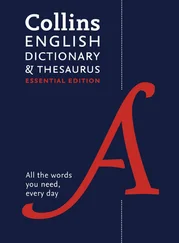Various - English Jests and Anecdotes
Здесь есть возможность читать онлайн «Various - English Jests and Anecdotes» — ознакомительный отрывок электронной книги совершенно бесплатно, а после прочтения отрывка купить полную версию. В некоторых случаях можно слушать аудио, скачать через торрент в формате fb2 и присутствует краткое содержание. Жанр: foreign_humor, Анекдоты, на английском языке. Описание произведения, (предисловие) а так же отзывы посетителей доступны на портале библиотеки ЛибКат.
- Название:English Jests and Anecdotes
- Автор:
- Жанр:
- Год:неизвестен
- ISBN:нет данных
- Рейтинг книги:3 / 5. Голосов: 1
-
Избранное:Добавить в избранное
- Отзывы:
-
Ваша оценка:
- 60
- 1
- 2
- 3
- 4
- 5
English Jests and Anecdotes: краткое содержание, описание и аннотация
Предлагаем к чтению аннотацию, описание, краткое содержание или предисловие (зависит от того, что написал сам автор книги «English Jests and Anecdotes»). Если вы не нашли необходимую информацию о книге — напишите в комментариях, мы постараемся отыскать её.
English Jests and Anecdotes — читать онлайн ознакомительный отрывок
Ниже представлен текст книги, разбитый по страницам. Система сохранения места последней прочитанной страницы, позволяет с удобством читать онлайн бесплатно книгу «English Jests and Anecdotes», без необходимости каждый раз заново искать на чём Вы остановились. Поставьте закладку, и сможете в любой момент перейти на страницу, на которой закончили чтение.
Интервал:
Закладка:
A lady, who, by virtue of an immense fortune, acquired by her father in the profession of a pawnbroker, had married a poor nobleman, was shewing her new and elegantly furnished house to George Selwyn. Having led him from room to room, and displayed the whole of her rhetoric and taste, she at last threw open a pair of large folding doors that led into the grand saloon, which was superbly furnished, but contained no pictures. “Here, Mr. Selwyn,” said she, “I intend to hang up all my family.” “I thought,” replied George, “your ladyship might have spared yourself that trouble; for I always understood they were hung up long ago.”
A friend having pointed out to Sheridan, that Lord Kenyon had fallen asleep at the first representation of Pizarro, and that, too, in the midst of Rollo’s fine speech to the Peruvian soldiers, the dramatist felt rather mortified; but, instantly recovering his usual good humour, he said, “Ah poor man! let him sleep! he thinks he is on the bench .”
Sheridan sometimes met with his match, and that in quarters where it might have been least expected. He was one day endeavouring to cut a suit of new clothes out of a tailor’s shop in the city. Flattery was the weapon he employed. “Upon my word,” said he, “you are an excellent finisher; you beat our snips in the West End hollow. Why don’t you push your thimble amongst us? I’ll recommend you every where. Upon my honour your work does you infinite credit.” “Yes,” replied the artist, “I always take care that my work gives long credit , but the wearers ready money .”
A stammering Lord Deloraine, being in a cock-pit, and offering several bets, which he would have lost if he could have replied in time, at length offered ten pounds to a crown. A gambler who stood by, said, “Done;” but, his lordship’s fit of stuttering happening to seize him at that moment, he could not repeat the word “done” till the favourite cock was beat. “Confound your stuttering tongue!” cried the leg , “if you could speak like other folk, you would be ruined.”
Dunning the celebrated barrister, was addicted to the low and unpardonable vice of turning witnesses into ridicule at their examinations. One morning, he was telling Mr. Solicitor-General Lee that he had bought a few good manors in Devonshire, near his native village of Ashburton. “I wish,” said Lee, “you would bring some of them into Westminster Hall; for upon my honour, you have most need of them there.”
The first time the musical instrument called The Serpent was used in a concert where Handel presided, he was so much surprised with the coarseness of its tones, that he called out hastily, “Vat de devil is dat?” On being informed it was the serpent, he replied, “It never can be de serpent vat seduced Eve.”
About the time when Murphy so successfully attacked the stage-struck heroes in the pleasant farce of The Apprentice , an eminent poulterer went to a sporting-club in search of his servant, who, he understood, was that evening to make his debut in Lear; he entered the room at the moment when Dick was exclaiming, “I am the king – you cannot touch me for the coining!” “No, you dog,” cried the enraged master, catching the mad monarch by the collar; “but I can for not picking the ducks.”
A Frenchman, who had learnt English, wished to be particularly polite, and never neglected an opportunity of saying something pretty. One evening, he observed to Lady R – , whose dress was fawn-coloured, and that of her daughter pink, “Milady, your daughter is de pink of beauty.” “Ah monsieur, you Frenchmen always flatter.” “No madam, I only speak de truth, and what all de world will allow, dat your daughter is de pink , and your ladyship de drab of fashion!” It was with great difficulty that the Frenchman could be made to comprehend his sottise .
An old East Indian, who had returned from Calcutta, with a large fortune and a liver complaint, had retired to his native place (Banffshire), and was availing himself one evening of the usual privilege of travellers to a very large extent. His Scotch friends listened to his Major Longbows with an air of perfect belief; till, at last, the worthy nabob happened to say, that in a particular part of India it was usual to fatten horses upon the flesh of sheep’s heads reduced to a pulp and mixed with rice. “Oh,” exclaimed all his auditors with one voice, “Oh, that will never do. We can believe all the rest; but really, feeding horses upon sheep’s heads is too bad.” “Well, gentlemen,” said the man of the East, “I assure you, that my story about the horses is the only bit of truth that I have told you this evening !”
Mr. Tyers, the proprietor of Vauxhall Gardens, was a worthy man, but indulged himself a little too much in querulous complaints, when anything went amiss; insomuch that, he said, if he had been brought up a hatter he believed people would have been without heads! A farmer once gave him a humorous reproof for his kind of reproach of Heaven; he stepped up to him very respectfully, and asked him when he meant to open his Gardens. Mr. Tyers replied, the next Monday fortnight. The man thanked him repeatedly, and was going away; but Mr. Tyers asked him in return, what made him so anxious to know. “Why, sir,” said the farmer, “I think of sowing my turnips on that day, for you know we shall be sure to have rain.”
A gentlemen paying a visit one morning to a family in Hanover Square, was shewn into a room, where on a writing desk was a paper, on which a lady had begun to transcribe a song from the opera of Love in a Village : remarking that she had left off at the end of the two following lines, —
In love should there meet a fond pair,
Untutor’d by fashion or art;
he took up a pen, and completed the verse by adding, —
If on earth such a couple there be,
I’ll be whipt at the tail of a cart!
Among the many peculiarities of Dr. Burney, were two of a very innocent kind: the first was, the constant possession of wine of the best vintage, the next the dread of a current of air. “Shut the door,” was the first salutation uttered by him to any one who entered his apartment; and but few of his associates ever neglected the rule. This custom did not abandon him on the most trying occasions; for having been robbed by footpads while returning home one evening in his carriage to Chelsea Hospital, of which national asylum he was organist, he called them back as they were making off, exclaiming to them, in his usual peremptory tone, “Shut the door.” A voice so commanding had the desired effect; he was instantly obeyed.
Mr. Jekyll being told that Mr. Raine, the barrister, was engaged as counsel for a Mr. Hay, inquired, if Raine was ever known to do good to Hay?
While Handel was presiding at the organ, during the performance of his oratorio, entitled “Israel in Egypt,” the prima donna, Figuria Galli, commenced a song entirely out of tune – “I am an Israelite;” upon which Handel stopped the accompaniment, glared ferociously down upon the offender, and exclaimed, in a voice of ten thousand thunders, “ You are von dam beesh! ”
Читать дальшеИнтервал:
Закладка:
Похожие книги на «English Jests and Anecdotes»
Представляем Вашему вниманию похожие книги на «English Jests and Anecdotes» списком для выбора. Мы отобрали схожую по названию и смыслу литературу в надежде предоставить читателям больше вариантов отыскать новые, интересные, ещё непрочитанные произведения.
Обсуждение, отзывы о книге «English Jests and Anecdotes» и просто собственные мнения читателей. Оставьте ваши комментарии, напишите, что Вы думаете о произведении, его смысле или главных героях. Укажите что конкретно понравилось, а что нет, и почему Вы так считаете.












